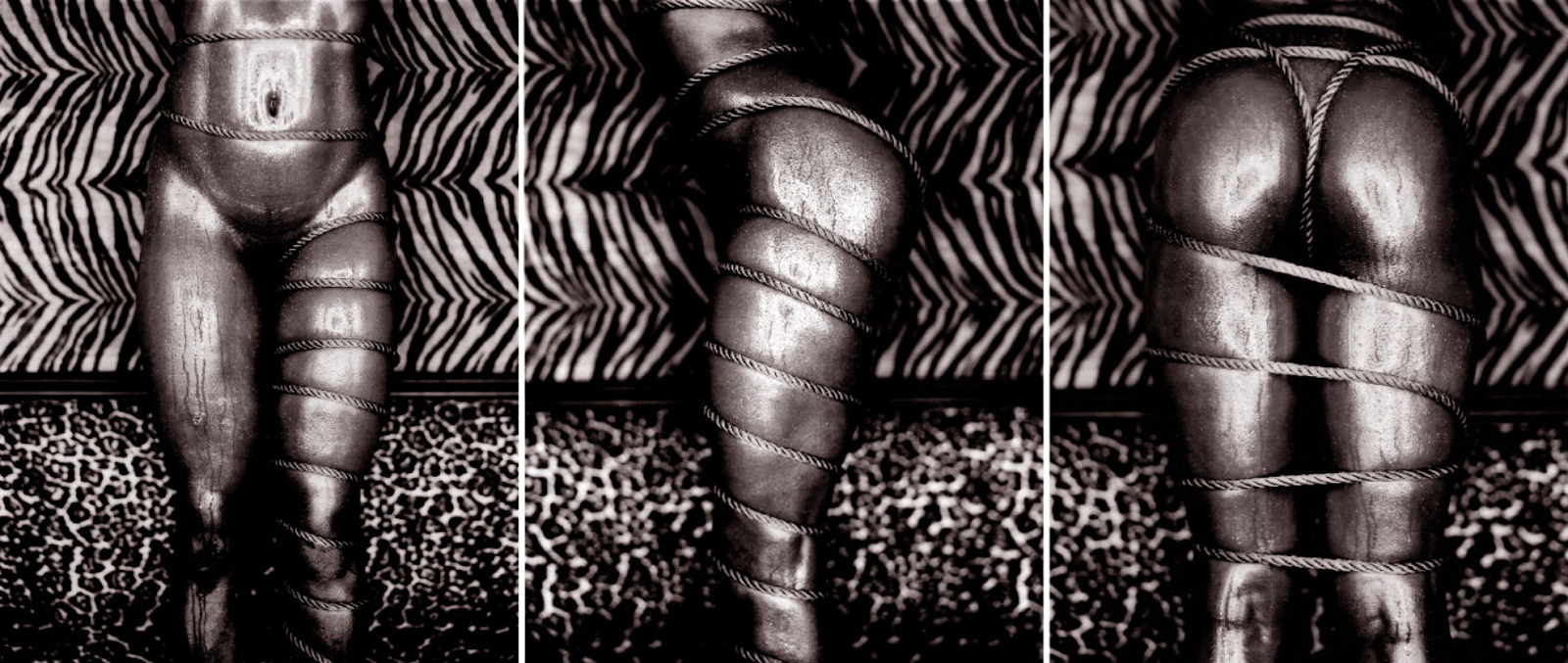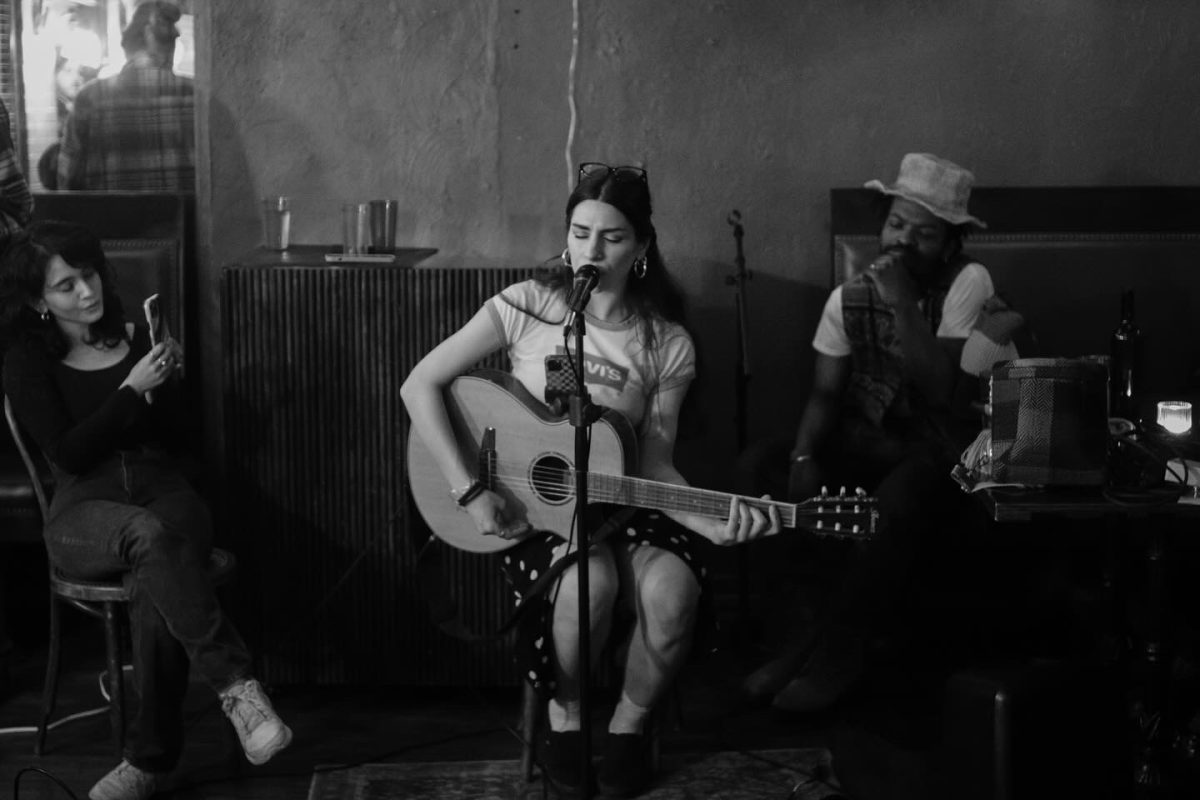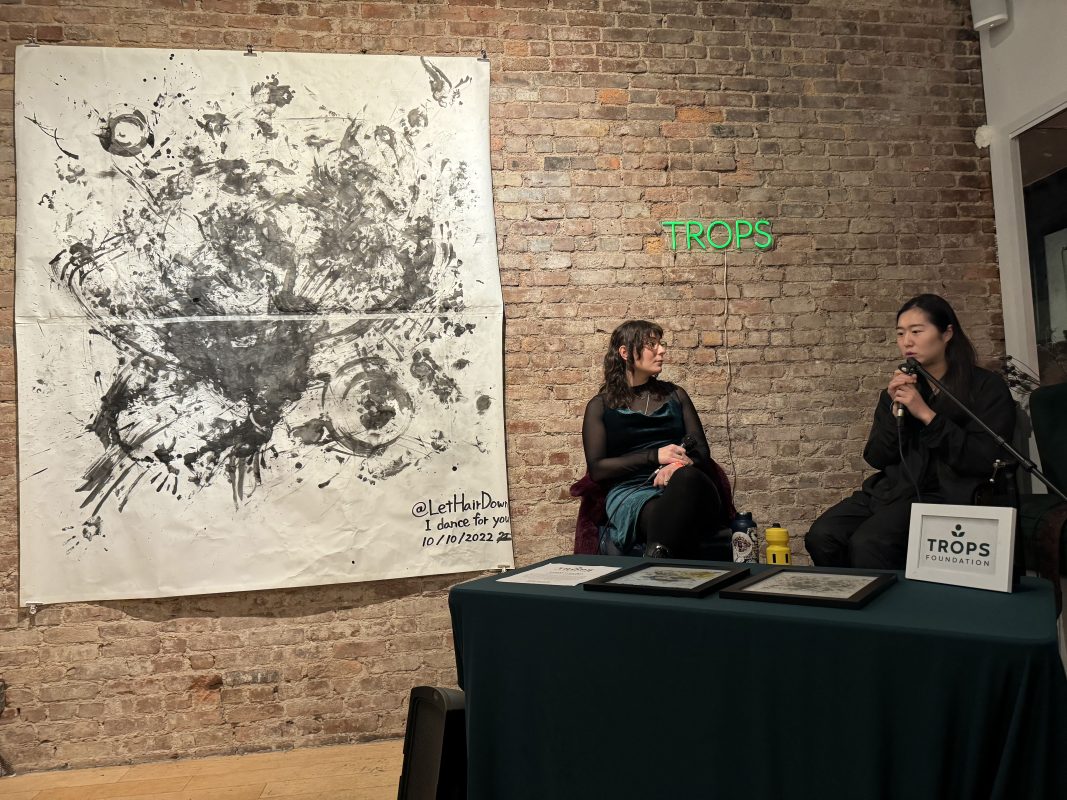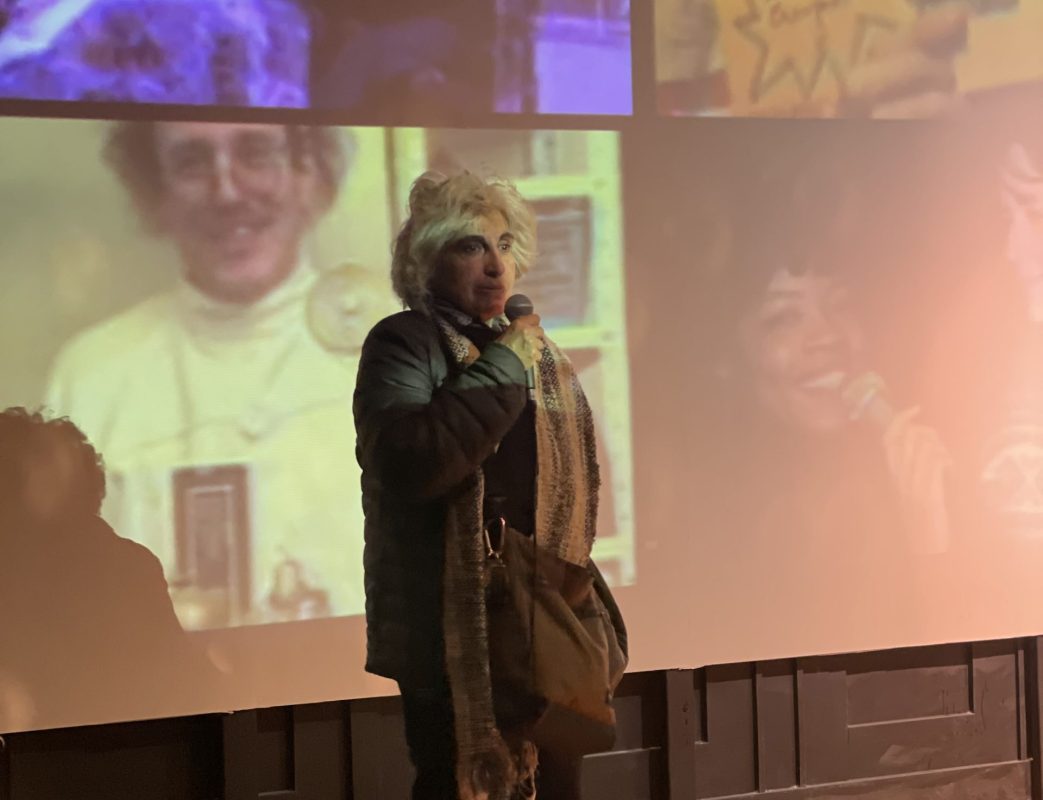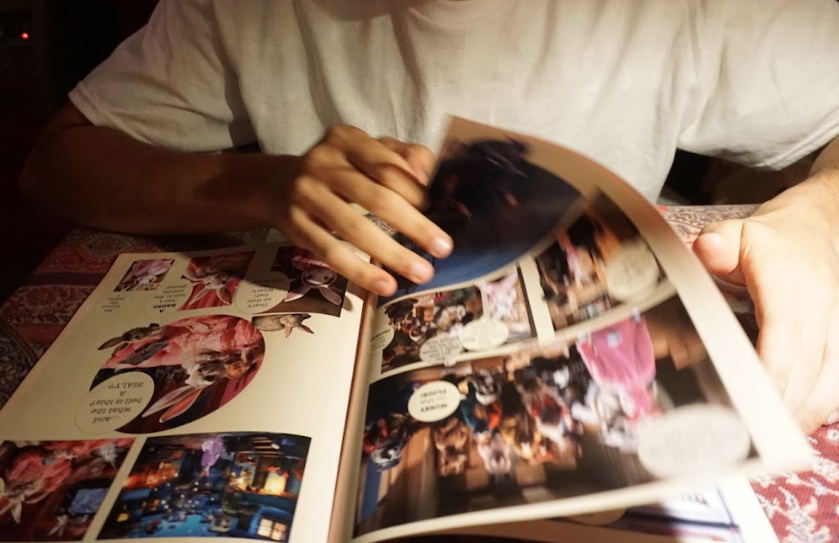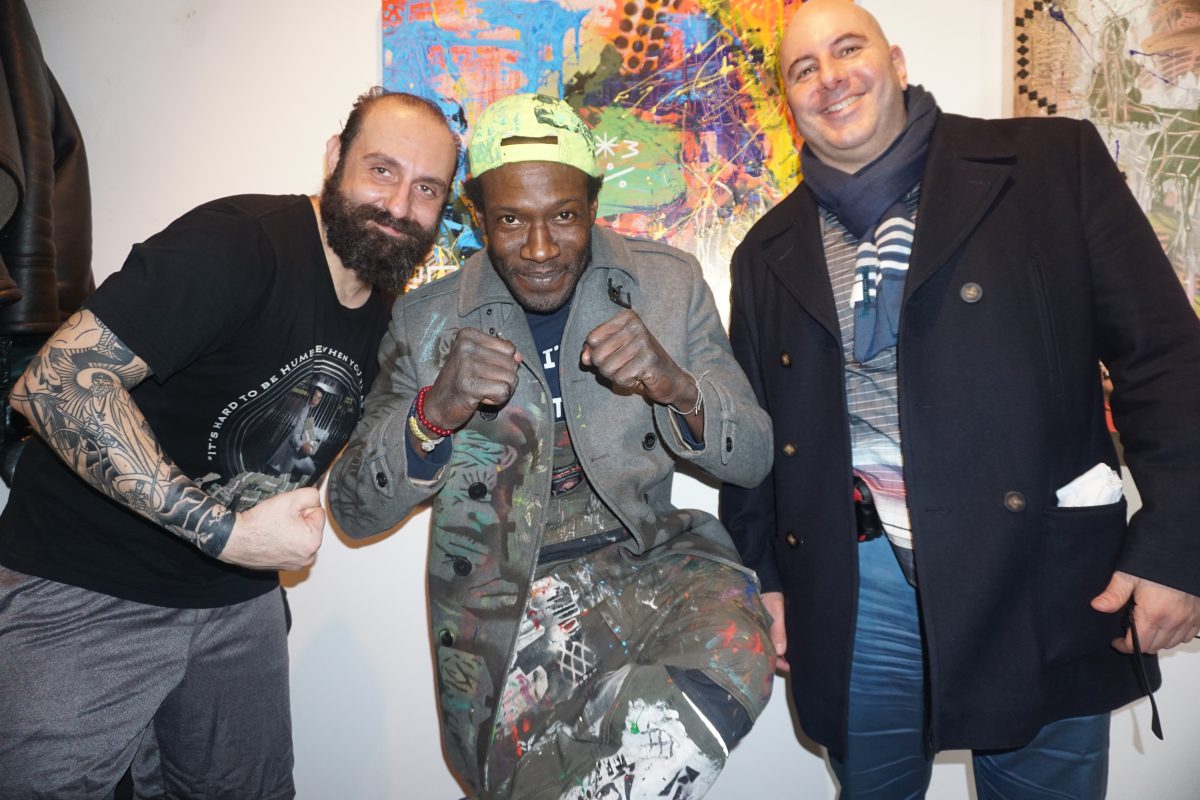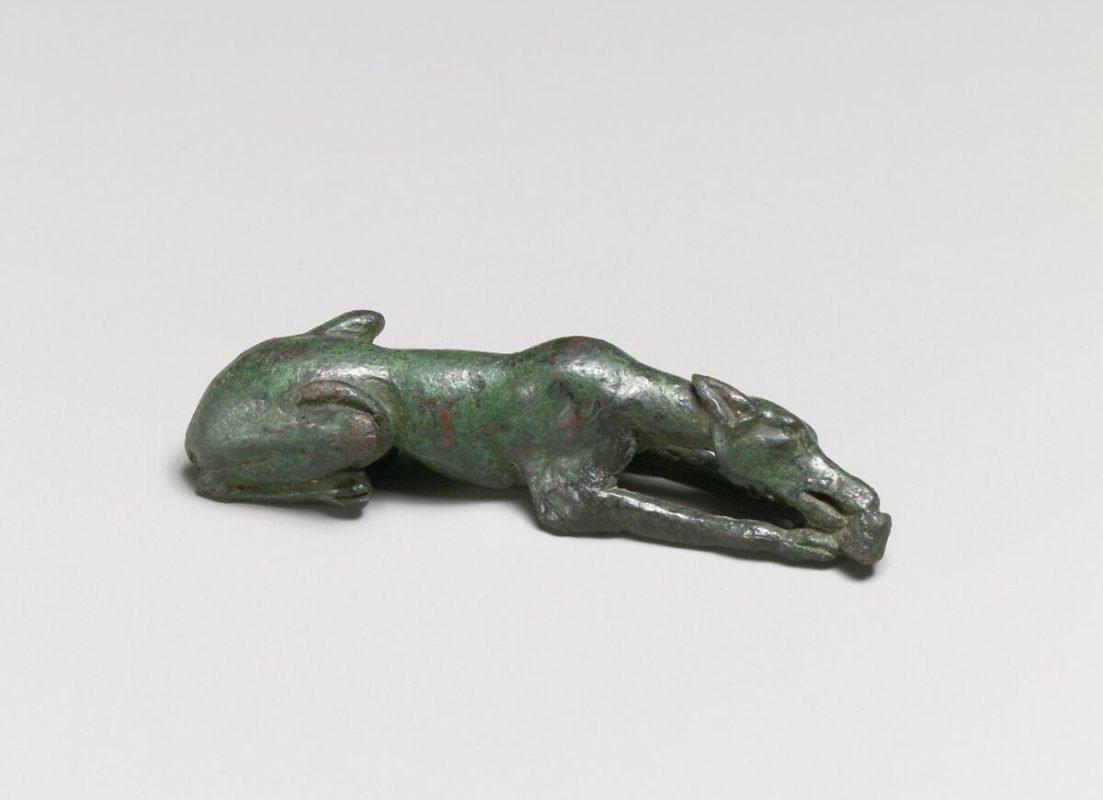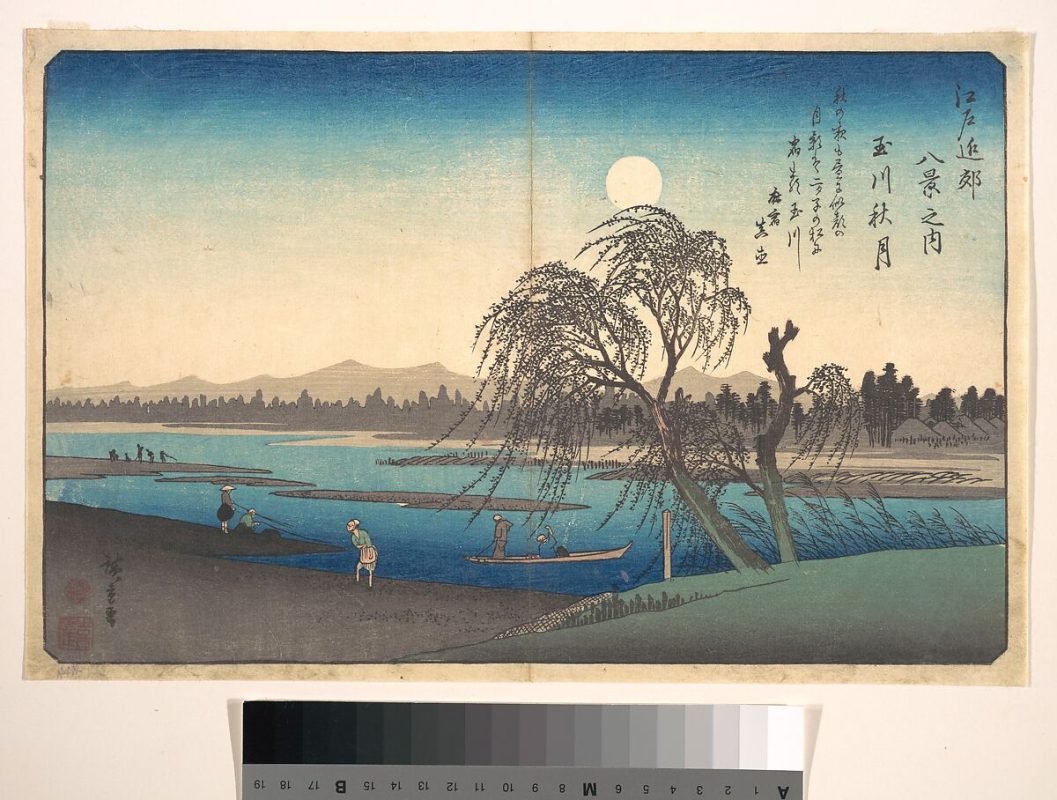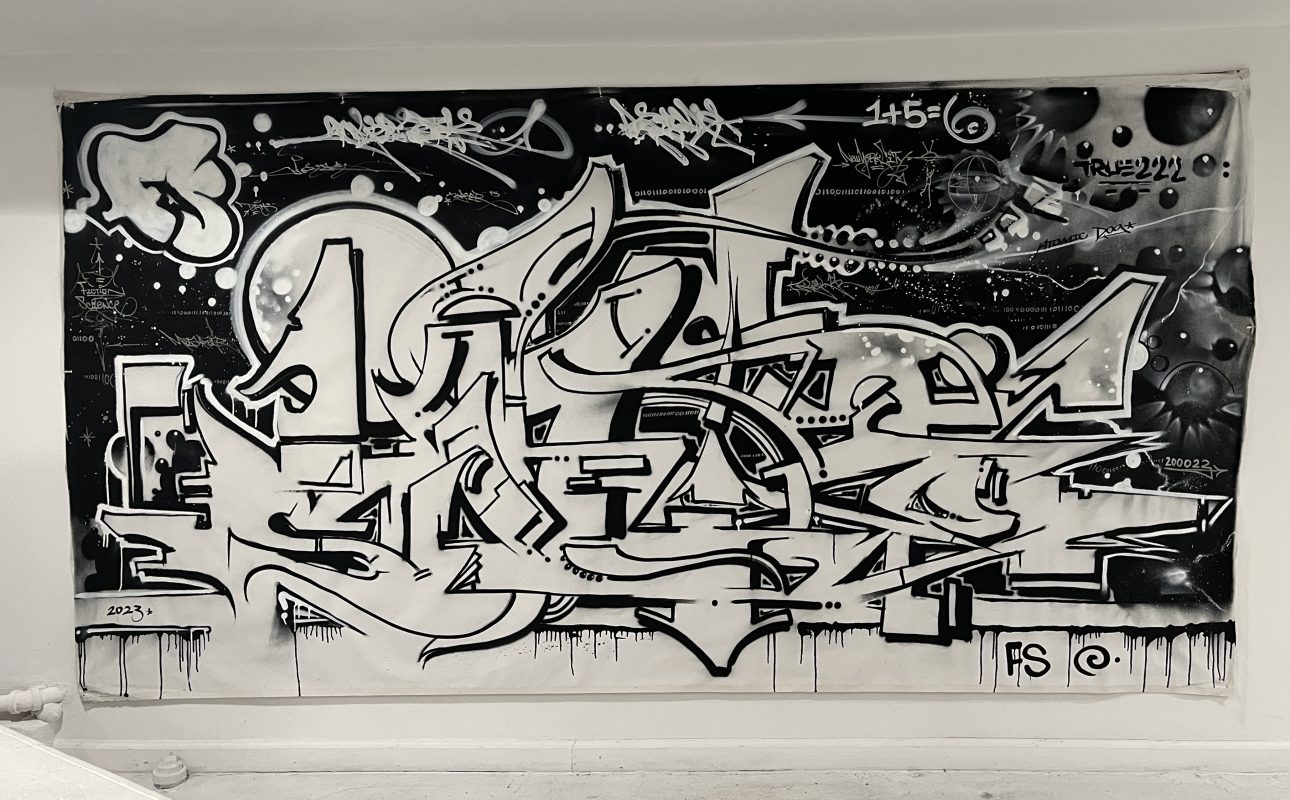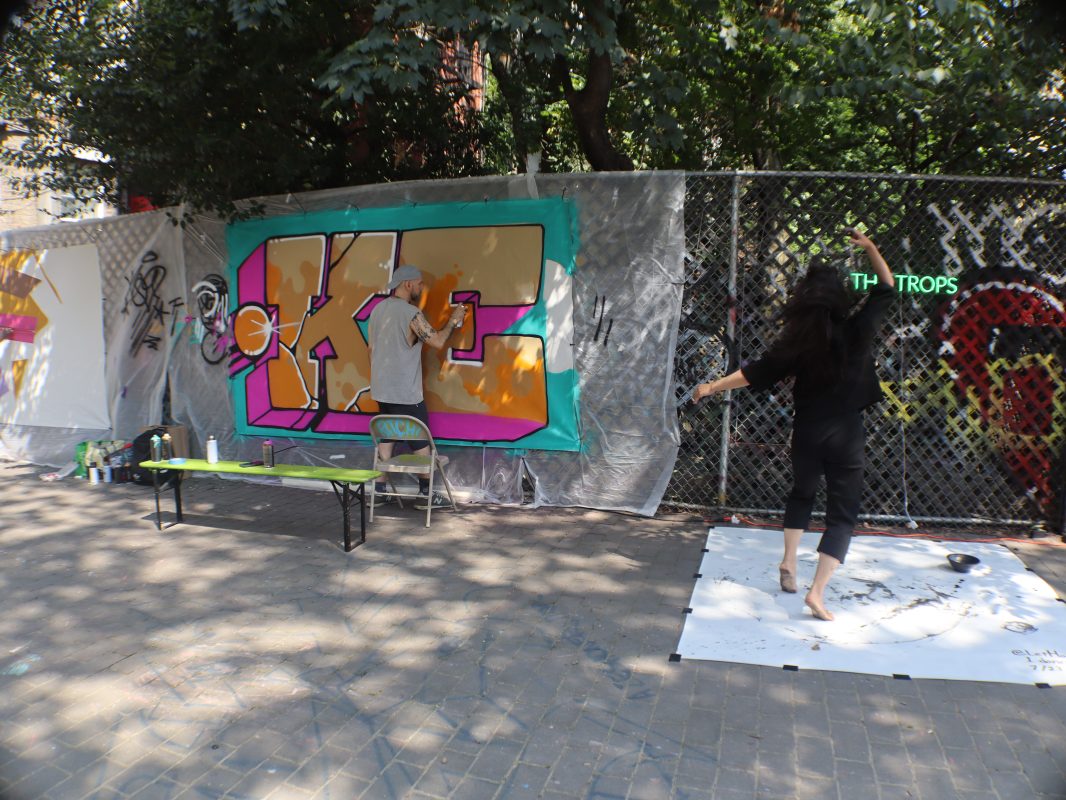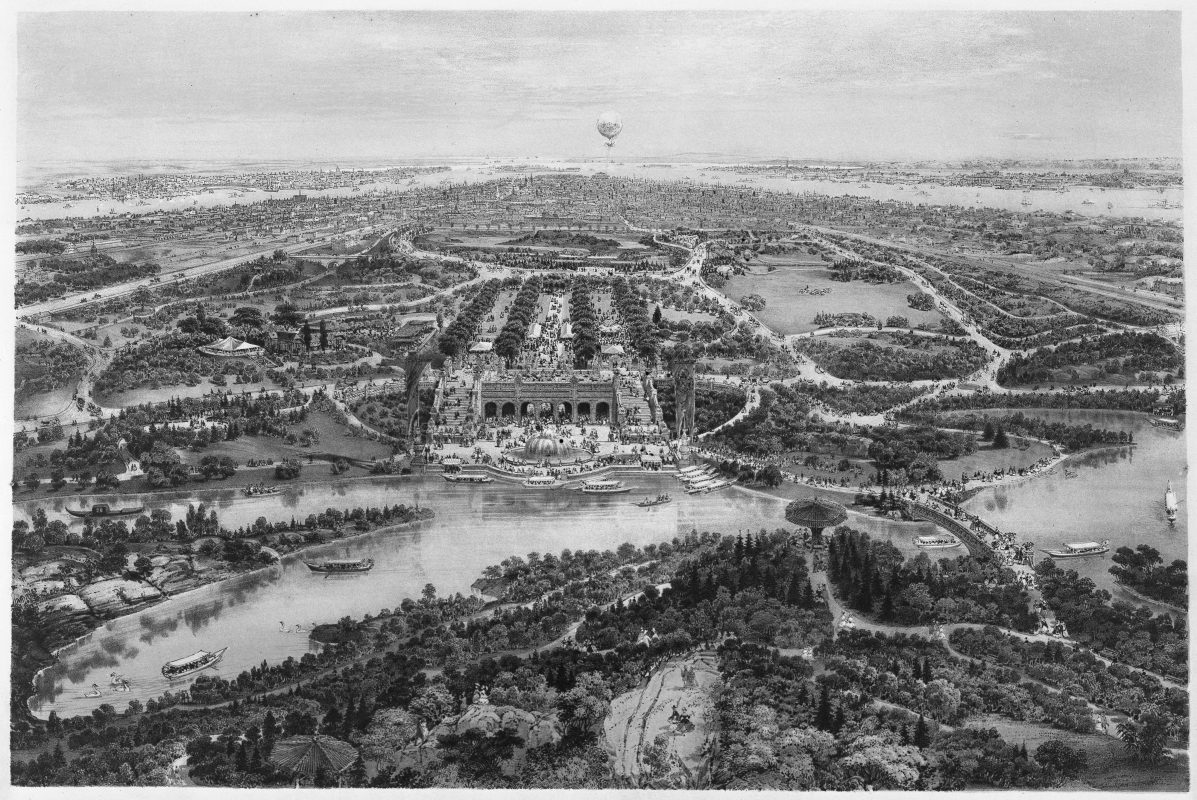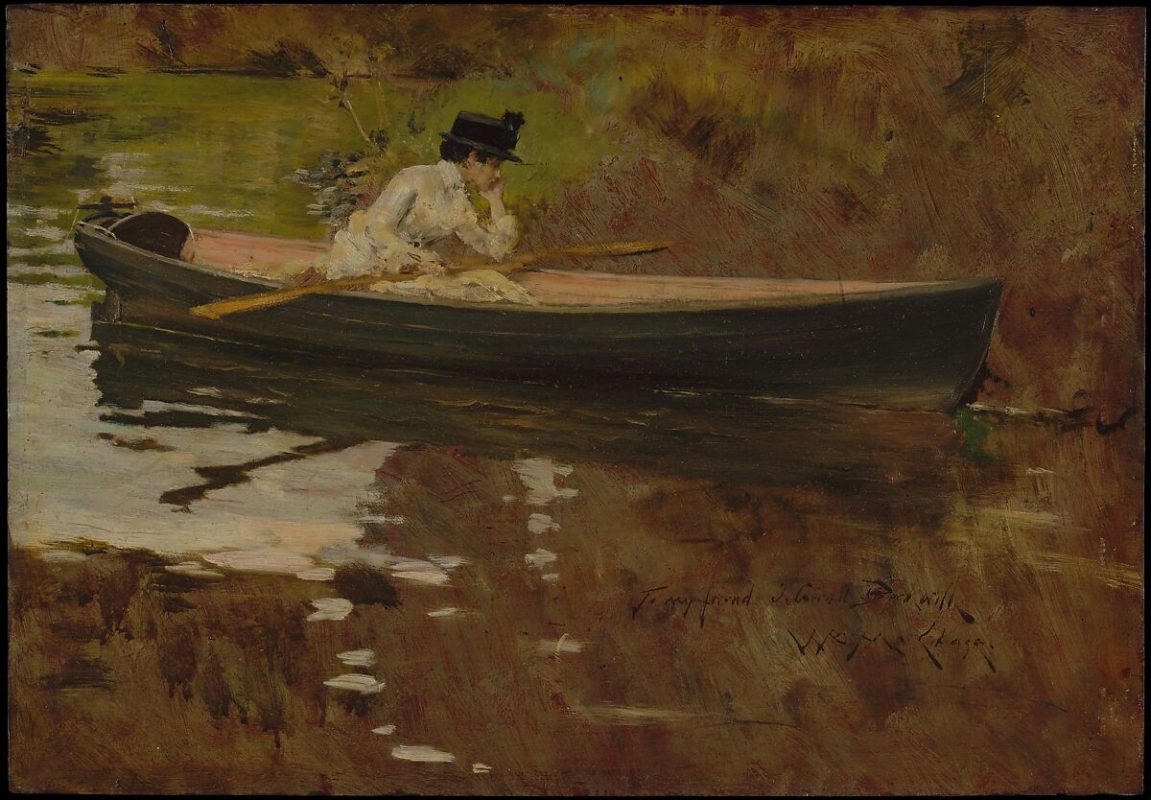Barron Claiborne
Rope
2001
Born and raised in Boston, Barron Claiborne moved to New York City in 1989 assisting photography legends such as Richard Avedon, Irving Penn, and Gordon Parks. Nathalie Martin spoke with Barron about what informs his practice, the limits and reaches of photography, and the importance of constantly creating. Claiborne reflects on self-taught mastery and how his extremely honest, critical, yet sensitive eye has landed him in permanent collections all over the world, including the Polaroid Museum Cambridge, the Brooklyn Museum, the Houston Museum of Fine Arts, and MoCADA.
Continued from Part 2
NM: Are you of the opinion that the work needs another set of eyes for it to be finished?
Barron Claiborne: I think to a point. Yeah, I think so. I think it's good to see how other people interpret your work, because usually it’s completely different than you.
NM: Do you think the viewer completes the work, or that the work is made, finished, and then shown?
Barron Claiborne: No, I think the viewer has their own opinion of the work. It matters what I thought of the work when I was making it. It's great to hear other people's opinions. That's part of being an artist– I don't mind that. If you hate my work, I don't care, somebody else likes it. But at least tell me why you hate it. And who are you to criticize me when I'm doing some shit you can't do?
NM: Well, totally.
Barron Claiborne: That’s the problem. When I see dudes doing crazy shit– sometimes I like to watch when people are snowboarding, doing all kinds of crazy shit, jumping out buildings with no parachutes–I'm not interested in doing it. But I still think it's amazing that they do it. I think it's amazing. When I see those dudes on snowboards and they're doing like 720’s and all kinds of shit, that's just fucking amazing. I'm not interested in doing it, but I would never want them to stop doing it. I would never want somebody to stop them from doing it. Because it's part of the human spirit. They're willing to risk it all. Dude, some of that shit is crazy. You see kids doing handstands in a chair on a cliff. I think it's amazing that they want to challenge their physical body that much, that they're doing this crazy shit, you know? It's amazing.
NM: Definitely. It’s a form of art.
Barron Claiborne: Right, exactly. I think all that stuff is cool. I don't think it's dumb. They're doing it for a reason. And it also lets you know all the different parts of the human spirit, like what humans are capable of. And that's what's amazing about that shit. It just shows you what humans are capable of.
NM: That's true. Do you like discourse about your work?
Barron Claiborne: I don't really like to talk about it. It's visual, so what's the point? That’s how I feel. It's visual. You should interpret it yourself. It's better if I don't give you an interpretation. You can guess, you can make up your own answer, and then I find out shit about my work. You give something back to me.
NM: Totally.
Barron Claiborne: Other people tell you things that you never saw in it. You’ll be like, “Oh shit, I never thought about that.”
NM: So the meaning of your work changes?
Barron Claiborne: Sure. To different people.
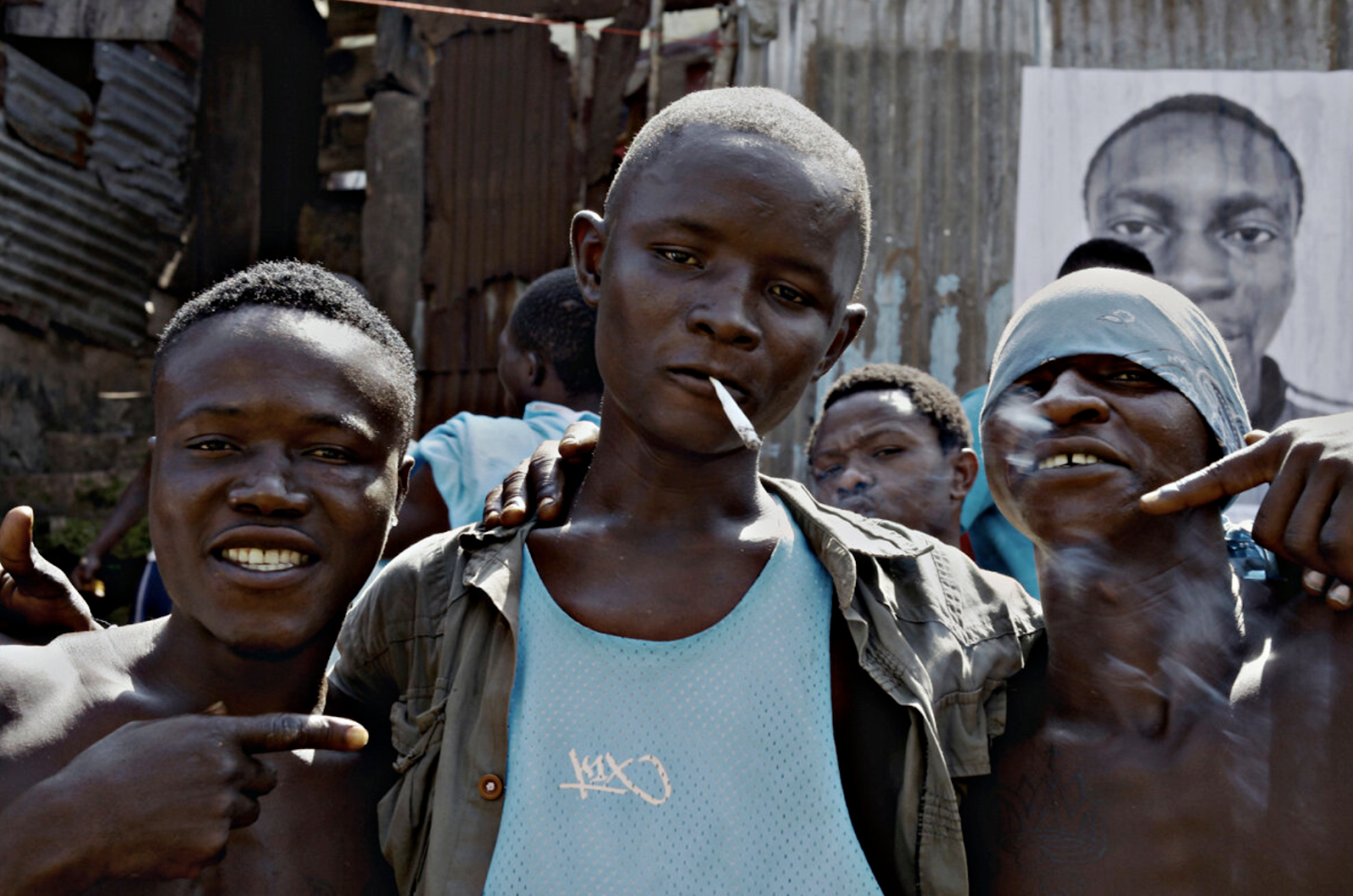
Barron Claiborne
Long Life with Cigarette (Sierra Leone)
2007
NM: But even to you, I mean. When you hear other people’s discoveries about your work.
Barron Claiborne: Over time, yeah. Sometimes I'll do photos and I never even look at them. And then I'll look at them like, you know, five years later, and I'll be like, “Wow, these are fucking nice.” But when I did them, I thought they were only okay. But then you start seeing ones and you're like, “Oh shit, that's nice.” Because you were at a different time. You were different then. But a lot of my photos I do now, I did them in childhood, I just have better equipment, and I know the techniques, how to light the camera, so I can do them better than I did when I was 10 or 11.
NM: Well, because your work too is aesthetically timeless, I feel like you can come back to it, you can return, and things are changing. Some things might work even better now than they did five years ago.
Barron Claiborne: Right. Exactly.
NM: How do you prefer your work to be shown? Do you like galleries, museums?
Barron Claiborne: No, galleries seem sterile to me. Museums too.
NM: I think in the work, the patterns and colors you play around with, shouldn’t be presented in a sterile environment.
Barron Claiborne: Yeah, I don't like it. I saw a photo exhibit I really liked in Europe; it was in a castle. The guys’ photos were all in the castle, in the environment of this beautiful museum, and I thought that was pretty cool because it was all different shit. It was fucking weird. I thought that was cool to outfit a whole place with your work. That was different. But yeah, galleries are very sterile. And I was a commercial photographer, so I'm used to fighting with other photographers, bringing in your portfolio– like, yeah, I could go to fucking Yale and then come back big because I can theorize a picture of a chair. I could do that before I went to Yale. But that appeals to authority. People want that stuff because if you went to Yale, you must be better than most people. But in photography, that doesn't really work.
NM: Really? Are you saying that photography is a specific medium you don't need school or “formal training” for?
Barron Claiborne: I guess for some people. I didn't go to school for that. I mean, nobody stops you from taking pictures, you just buy a camera and you fucking take pictures. And I think sometimes when you don't know the rules, it's better. Because when I moved to New York, I didn't know there were rules, you know?
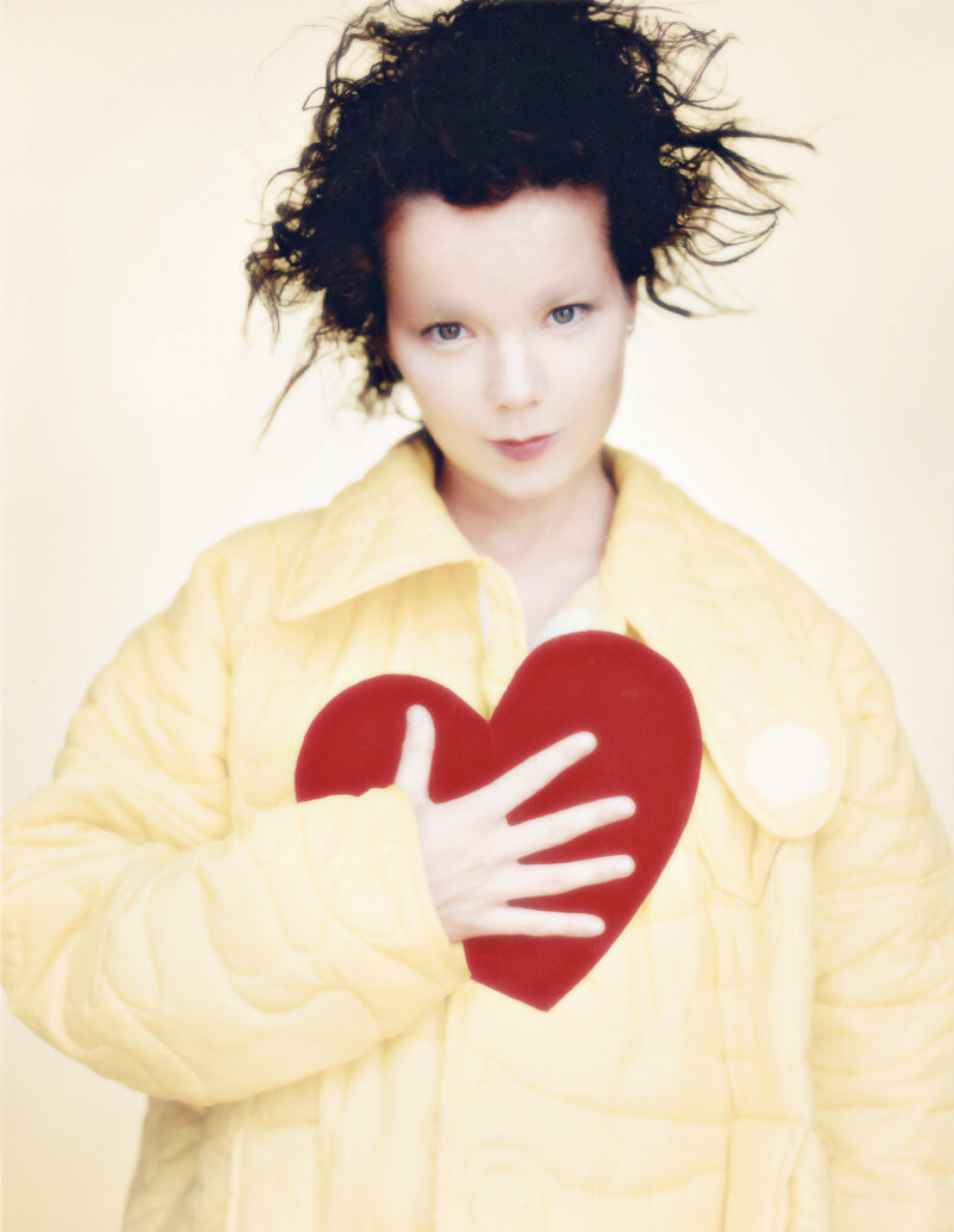
Barron Claiborne
Bjork With Heart
1998
NM: When you don’t know the rules it’s better? Don’t you think you should know the rules, so you can break them?
Barron Claiborne: No! Because you’ll still be bound by the rules. Even though you think you're breaking them, you're still bound by them– as opposed to not knowing the rules at all, so you don't care. I looked in the magazines that I liked the most, and then I started going to them with my portfolio, but I didn't have any money. I had a bunch of photos in a photo box, that's how we used to do it if you were broke. I was teaching kids and then came back to New York, and I had like seven boxes of shit. I was like, “Oh, I got to stop being a teacher and I got to fucking do some shit with this.” So then I printed a bunch of pictures over a couple of months, put them in boxes because I couldn't afford the book things, and I started bringing them around.
I went to the New York Times because I always liked it. I was in front of the building, and I looked inside to see the number of the photo editor, and I saw it was Kathy Ryan, and her number was there. I called her, and said, “Hi, my name is Barron, I have a bunch of photos that I’d like to show you.” And she was like, “Yeah, but this isn't how we do things, you drop it off on Wednesday,” and I'm like, “Look, I'm right underneath you, in the building. I'll drop it off because I know you must go to lunch,” whatever. And she says okay and tells me to come up. And I went up there and I showed her the box of photos and she gave me a job the next day.
And it was because I didn't know any better. Everybody else to this day is like, “How the fuck did you get to shoot with the New York Times?” And I just called her from below and no one believes me. They refuse to believe. But I didn't know the rules, so I was like, fuck it, I'll call her, her numbers right there. She’s either going to say no, or yes. And she said yes. And I went up there. At the time I looked super young, and she was weirded out by my age when she saw me, but then I showed her the photos and they were beautiful pictures of the kids that I taught photography to at camp. So then she was like, “Wow, these are really beautiful.” And she gave me a job.
NM: Wow. Just putting yourself out there.
Barron Claiborne: Yeah, I just didn't give a fuck, right. Because if I would have known when the right day was to drop my stuff off, or thought they were never going to take me, all this shit– I didn’t give a fuck. And that's how I got a lot of things. I just went to them.
NM: Where did that self-confidence come from?
Barron Claiborne: I have no idea. Hungry. I was fucking hungry, dude. When I moved to New York, I would just eat slices of pizza and go buy fucking linguine and make some sauce that lasted a week, you know. I love Italians. I survived on pasta and pizza. When I moved to New York, I used to be so fucking hungry, I'd be walking around with a headache and shit looking for a job. It was crazy.
NM: You weren't getting paid, working for these photographers?
Barron Claiborne: No, you got paid, but it was nothing. Back then, I think it was like $25 bucks a day, right? But I didn't work as an assistant all the time because I wanted to work on my own photography. And then after a while assisting, I was like, fuck this shit. I might as well make a portfolio myself.
NM: What triggers that decision to just go for it?
Barron Claiborne: When they start having you do menial tasks, putting quarters in their car meter, shit like that. And they would ask you for your portfolio. That always made me suspicious.
NM: When the people you were assisting would ask for your portfolio?
Barron Claiborne: Yeah. You always have to show them because they would steal motherfuckers’ work.
NM: Oh, of course.
Barron Claiborne: But you didn't know that when you were young.
NM: You think they're just checking up on your work?
Barron Claiborne: No, I mean they would act like you're young and naïve, and it's like your resume. But they’re looking at your shit to steal it. Because they recognize you have a lot of talent and no one has seen your process, no one's seen your work.
NM: I see this so much on social media with painters.
Barron Claiborne: Everyone’s just copying each other’s shit. Everywhere. It’s not even local now, because of social media. So before, I wouldn’t know what people were doing in the art scene in fucking Oklahoma, I didn't give a fuck. But now you have access to all that. And I think it's a bad thing.

